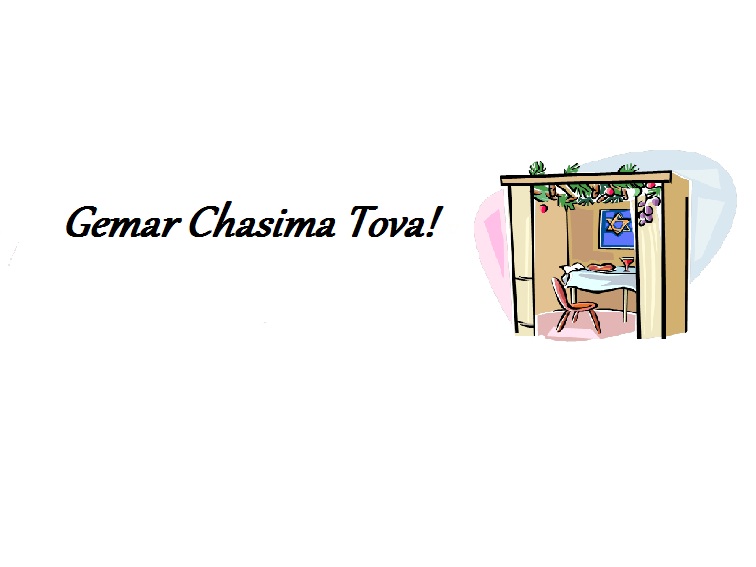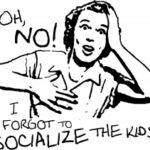 Rosh Hashanah has come, Yom Kippur will be here in less than 24 hours. I have been trying to think of something to write, but nothing popped into mind.
Rosh Hashanah has come, Yom Kippur will be here in less than 24 hours. I have been trying to think of something to write, but nothing popped into mind.
Baruch Hashem we have been busy. Our annual Scout popcorn fundraiser is in full swing now, with $4000 worth of popcorn already bought – and that does not include the chocolate flavors that we could not purchase this round (the chocolate melts too easily we are told.) I am told the popcorn is much better than last year and not to mention it is in tins again. (All popcorn is OU-D, with the plain unpopped kernels OU-Parve – anyone interested? 😉 )
This is the best and worst time of the year. The best time for the boys to work on their socialization skills and go door-to-door and talk to all sorts of people – from young to old, from cranky to nice, from English speakers to non-English speakers. They also get lots of exercise for they do a lot of walking! It is the worst time for Daddy and Mommy have to go and take them all over, not just once, but twice when we have to deliver to the wonderful places that bought. But soon it will be over and we are hoping that the older two will have earned enough to go to one week of Jewish Scout camp in the summer (the number 3 boy has one more year before he can go!)
We sure hit our new year off to a good start with missing the first 1.5 days of Room613! Several boys thought they read there will be no classes the ENTIRE week, not just for Rosh Hashanah. But after talking to my sister and a friend on the second day after Rosh Hashanah, I found out they were wrong. Lesson learned: Read my emails more closely… It was not a total loss, I tried to add more secular work into the 2 days that would have been missed because of Rosh Hashanah.
We did not delve into Yom Kippur last week too much, probably should have, though I had other unrelated things on my mind. Sometimes I find it hard to balance personal learning and introspection with teaching the boys and helping them out with the same things. We did talk about some of the basic prayers and their meanings. I also found some nice Kol Nidre songs on Youtube to help get us in the mood. One thing I told the boys is that they should read the davening in English – especially the Al Chets. Since all the davening we do is for us, not Hashem, how are we supposed to put ourselves in the correct frame of mind if we do not even know what we are saying?
This week we worked on Yonah and the Whale. I found some nice one page versions for preschoolers and a cute song for the little one, as well as a translation of the Vilna Gaon’s work on sefer Yonah. That is set for high school, however, my older boys are getting some of it. They just had chapter 1 on chinuch.org, however, I was able to find the full English version at the Daf Yomi Review website. We are not going to finish what we have, but that is fine, that leaves more to learn another time. My youngest wanted stuff to color today, but the computer we use for printing was being used, so I will hopefully print out a copy of Yonah and the whale for him to color tomorrow while we sing our song or I’m working with the older boys.
Sukkos is right around the corner, and it is always tough to do Sukkos learning with very few days – I feel I should spend several days on Yom Kippur, and not just rush through it to start Sukkos material, but then I feel Sukkos gets jipped! I did buy nice 8.5 x 11 charts from Torah U’Mesorah on Sukkos many years ago. I do not always go over them with the boys, but I think it is time to do them again. When the older boys were younger, I did manage to do several projects such as a styrofoam esrog and foam/feathered lulav, however, lately we have been focusing on getting the sukkah all up and set that we do not do very many crafts for we are also still doing school work. We are fortunate for the front entrance to the house has three walls already and all we need to do is add schach on top. We have most of the schach (about 70 individual bamboo sticks), but it is not quite enough, and we always have to figure out where to find more! I think I will need to come up with one nice decoration they can each do, the previous ones are getting old. Oh, and I think I have one more styrofoam ball the youngest can paint as well as some green foam. I think an older brother might like to spend some quality time with his youngest bro. 🙂
I am going to finish up, drink more liquid, and try to finish getting myself ready for tomorrow night. Wishing everyone a Gemar Chasima Tovah and an easy fast!



